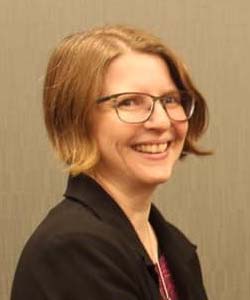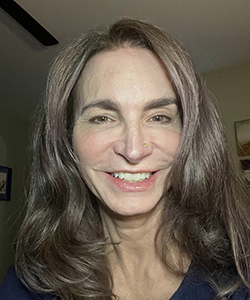Constructions and the Grammar of Context
Presenters: Elaine Francis, Laura Michaelis
T1MRB1
Why do languages offer different grammatical options for expressing a given message, and how do speakers choose among these options? For example, in the following exchange (adapted from Switchboard), what makes the first two options for B’s response more likely than the third one?
A: Uh huh. That's some pretty good ideas. Why don't you do something with those? You should run for a local school board position.
B: THAT I’m not so SURE about. / I’m not so sure about THAT. / #THAT I’m not so SURE about it. I’ve got a lot of things to keep me busy.
In this workshop, you will learn to use tools from Sign-Based Construction Grammar (SBCG) to answer these and other questions about functions of language in context. We will take constructions to be patterns of sign combination, of varying degrees of lexical fixity, with meanings and communicative functions that are not strictly predictable from the meanings of the component signs. We will use aspects of context, broadly understood as both conversational common ground and ideology/belief, to explain why language users choose the constructions that they do at a given juncture, and how and why they innovate, as when they combine constructions in novel ways. Through lectures, discussions, and data sessions, we will explore:
-the ways in which constructions index context, and how this can be modeled using SBCG;
-the effect of lexical content and disworkshop context on interpretation of constructions;
-the division of pragmatic labor within the 'constructicon’;
innovation and optimization as a source of new constructions
-the realization of context effects in corpus distributions and in patterns of judgments or response times in experimental tasks.
Keywords: Construction Grammar, Information Structure, Pragmatics, Syntax, Variation, Corpus Linguistics, Theoretical Frameworks
Room GER 248, Mondays and Thursdays, July 7-July 21, 10:30am - 11:50am
Mondays and Thursdays
Presenters

Purdue University
Elaine J. Francis is a professor in the Department of English at Purdue University. In her research, she uses experimental methods to investigate the syntactic, semantic, discourse-pragmatic, and cognitive factors that underlie the grammar and usage of complex sentence structures. Her work also explores the relationship between data from experimental tasks and theoretical interpretation. For example, her recent book, Gradient Acceptability and Linguistic Theory (Oxford University Press, 2022), examines the complex problem of interpreting data from acceptability judgment tasks in relation to theoretical questions in syntax.

University of Colorado Boulder
Laura A. Michaelis is Professor and Chair of Linguistics at the University of Colorado Boulder, and a Faculty Fellow in the Institute of Cognitive Science. She received her PhD in Linguistics at the University of California, Berkeley under the direction of Charles J. Fillmore. She is a cognitive-functional syntactician and semanticist specializing in the tense-aspect interface, corpus syntax, syntactic innovation, lexical semantics, and the discourse-syntax interface. She is one of the developers of Sign-based Construction Grammar, a syntactic theory that represents the grammar of a language as a structured inventory of patterns ranging from the highly schematic to the very specific. With Jongbok Kim, she co-authored a 2020 textbook on Construction Grammar, Syntactic Constructions of English (CUP). She is one of the founding editors of the CUP interdisciplinary journal Language and Cognition, also published by CUP. Her work has appeared in the journals Language, Studies in Language, Journal of Linguistics, Linguistics & Philosophy, Journal of Semantics, Cognition and Cognitive Linguistics. She is a 2022 Fellow of the LSA, a 2022 recipient of the Boulder Faculty Assembly's Excellence in Research award and a 2022 recipient of the CU Boulder Graduate School's Outstanding Faculty Mentor award. In current work, she is examining syntactic aspects of climate change discourse.
Room GER 248, Mondays and Thursdays, July 7-July 21, 10:30am - 11:50am
Mondays and Thursdays
